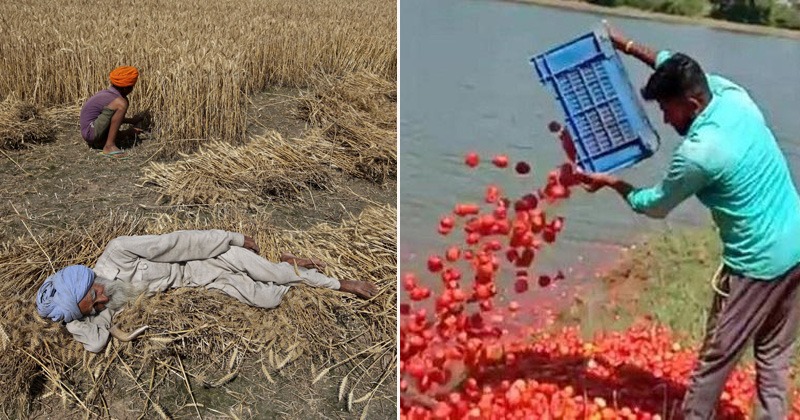A large number of countries announced lockdowns and restrictions on movement in a bid to stop the spread of coronavirus. While these restrictions will hopefully help control COVID-19, it is also impacting a very important section of the society: The farmers. Across the world farmers are going through a tough phase because of the social distancing requirements of the current scenario.
Here’s how they are coping.
A severe shortage of labour, triggered by India's 21-day lockdown to curb the spread of the new co… Read More
A severe shortage of labour, triggered by India’s 21-day lockdown to curb the spread of the new coronavirus, may disrupt harvesting of winter crops in the world’s second-largest producer of staple food grains, such as wheat.
Read Less
A farmer carries harvested cauliflower for sale through a field in Kolkata. India has stockpiles of wheat, rice and sugar for its own population and has not been exporting wheat, so international grains markets are unlikely to be affected for now by the labour issues.
Vegetable grower Didier Lenoble, wearing a protective face mask, poses in front of a greenhouse during the outbreak of coronavirus.
A young farmer from Ingalakuppe of Pandavapura in Mandya district dumped several crates of his tomat… Read MoreA young farmer from Ingalakuppe of Pandavapura in Mandya district dumped several crates of his tomato produce into a lake as he failed to sell it due to the lockdown.
Read Less"Uncertainty about food availability can spark a wave of export restrictions, creating a shortage on… Read More
“Uncertainty about food availability can spark a wave of export restrictions, creating a shortage on the global market,” said the joint text signed by Qu Dongyu, head of the UN’s Food and Agriculture Organization (FAO), Tedros Adhanom Ghebreyesus, director-general of the World Health Organization (WHO) and Roberto Azevedo, director of the World Trade Organization (WTO).
Read Less
Over the longer term, confinement orders and travel restrictions risk causing disruptions in agricultural production due to the unavailability of agricultural labour and the inability to get food to markets.
Closing borders has exposed just how much certain countries are dependent upon foreign workers to bring in crops.
The FAO, WHO and WTO leaders also stressed the need to protect employees engaged in food production, processing and distribution, both for their own health and that of others, as well as to maintain food supply chains.
A Bolivian farmer harvests barley as the country is under a nationwide quarantine.
Farm workers wearing masks are carried on a wagon pulled by a tractor during a 21 day nationwide lockdown, aimed at limiting the spread of coronavirus disease, near a farm in Eikehof, South Africa.

